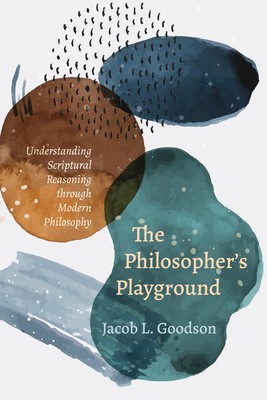
- We will send in 10–14 business days.
- Author: Jacob L Goodson
- Publisher: Cascade Books
- ISBN-10: 1608995585
- ISBN-13: 9781608995585
- Format: 12.7 x 20.3 x 1.4 cm, softcover
- Language: English
- SAVE -10% with code: EXTRA
Reviews
Description
Since its inception in 1994, scriptural reasoning has been practiced by academics and religious laypeople on an international scale. Scriptural reasoning is an activity or practice where Jews, Christians, and Muslims read and study together short passages from their traditionally sacred texts. In this book, Jacob L. Goodson describes this activity by giving a tour through modern philosophy and showing how certain arguments, ideas, and theories from modern philosophers help make sense of this inter-religious practice. According to Goodson, one of the most interesting aspects of the practice of scriptural reasoning concerns how its driven by a tension between pragmatism and semiotics--what he calls purposefulness (pragmatism) vs. playfulness (semiotics) throughout the book. Can inter-religious practices only be playful, in terms of an academic "leisure activity"? Or do inter-religious practices need to strive toward a greater end or even a higher purpose, such as peace-making among the Abrahamic faiths or inter-religious friendships? In each individual chapter, Goodson explores this tension within the practice of scriptural reasoning. Utilizing Immanuel Kant's deontology, Goodson concludes by demonstrating how the practice of scriptural reasoning might work if only two rules are in place while participating in it.
EXTRA 10 % discount with code: EXTRA
The promotion ends in 17d.08:35:59
The discount code is valid when purchasing from 10 €. Discounts do not stack.
- Author: Jacob L Goodson
- Publisher: Cascade Books
- ISBN-10: 1608995585
- ISBN-13: 9781608995585
- Format: 12.7 x 20.3 x 1.4 cm, softcover
- Language: English English
Since its inception in 1994, scriptural reasoning has been practiced by academics and religious laypeople on an international scale. Scriptural reasoning is an activity or practice where Jews, Christians, and Muslims read and study together short passages from their traditionally sacred texts. In this book, Jacob L. Goodson describes this activity by giving a tour through modern philosophy and showing how certain arguments, ideas, and theories from modern philosophers help make sense of this inter-religious practice. According to Goodson, one of the most interesting aspects of the practice of scriptural reasoning concerns how its driven by a tension between pragmatism and semiotics--what he calls purposefulness (pragmatism) vs. playfulness (semiotics) throughout the book. Can inter-religious practices only be playful, in terms of an academic "leisure activity"? Or do inter-religious practices need to strive toward a greater end or even a higher purpose, such as peace-making among the Abrahamic faiths or inter-religious friendships? In each individual chapter, Goodson explores this tension within the practice of scriptural reasoning. Utilizing Immanuel Kant's deontology, Goodson concludes by demonstrating how the practice of scriptural reasoning might work if only two rules are in place while participating in it.


Reviews